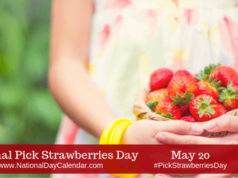
On June 8th, honor your closest and dearest friend on Best Friends Day.
The relationship between best friends is often fierce and can withstand distance, storms and silence. Whether we’ve known them all our lives or they are more recently acquired, best friends make tough times bearable, fun times memorable, and memorable times priceless.
- According to a Pew Research poll, 98% of teens have one or more close friends. And 78% of them say they have one to five close friends. (Pew 2018) However, as we move into adulthood, our friendship-making ability changes, along with our priorities.
- Way back in 1935, the US Congress decided to devote one day to pay tribute to close-knit friendships. It’s a lighthearted, super fun, and down-right awesome day that should continue to be recognized and celebrated.
- You’ll finish each other’s sentences. …and sandwiches.
- Your spouse will realize they’re not JUST married to you.
- They’ll be honest to a fault, especially when you need it the most.
- Seriously, they know WAY too much.
- Your BFF will ensure you don’t embarrass yourself.
- They’ve always got your back.
- You can be brutally honest with each other.
- At last, do not forget those crazy moments you spent together which makes the relationship with your bestie incomparable to your other friendships!
- We’re losing friends at an alarming rate. The average number of confidants in the average person’s life has fallen by a third in the past 20 years. Now, twice as many people have no confidants at all!
- Need an idea for next year’s New Year’s resolution? Make some friends! Having no friends or confidants is as bad for your health as smoking or being overweight.
- If you want to live longer, a network of friends is actually even more important than a close family group.
- Older people live 22% longer if they have an extensive friend network.
- According to one study, adults have on average just two best friends—down from three, 25 years ago.
- Loneliness is a problem in America. One study found that, when asked how many confidants they had, more adults answered “zero” than anything else.
- 68% of teens who use social media have experienced online drama with friends. 26% have had a real-life conflict with a friend over something that was said online or through texting.
- Older people who feel lonely are over twice as likely to develop dementia. Strangely, this applies even if they have an existing friend network—the subjective feeling of loneliness is the determining factor, regardless of how alone you actually are.
- In order to reap the health benefits of friendship, you can’t stop at one. For the best health results, you need between three and five close friends.
- When we talk about friend networks, we don’t just mean on Facebook. Having a large online social network doesn’t necessarily mean your offline network will be any bigger, or that your friendships will be any closer.
- Do you wonder if it’s just you? A joint study between MIT and Tel Aviv University found that only half of the people we consider friends return the feeling.
- How popular can you get? The number of people you can handle in your social group—that is, people you consider casual friends—is about 150, also known as “The Dunbar Number.”
- According to a study conducted at the University of Chicago, nine-month-old babies can understand social relationships even before they can walk or talk. They watch strangers talking and can make guesses about whether strangers are friends or not!
- If you want to make your friendship stable, then you should know what irritates your friend.
- You and your friends most likely share the same social status.
- 38% of teenage boys confessed that they would share their gaming handle with someone they want to be friends with.
- According to a study, 57% of teenagers made a new friend online, and 29% of teens have more than five friends on the internet.
- We can manage to have 500 acquaintances and can remember the faces and names of 1,500 people at the max.
- College students spend most of their time socializing. They spend 10 to 25 hours a week on socialization! The amount of time goes down as we get responsibilities. It takes a nosedive when you get married.
- Aged people who think that their friends are a burden are more vulnerable to suffering from chronic illness.
- Older people who think that their friends are a support system are not that vulnerable to chronic illness.
- Having a healthy friendship with your spouse is five times more important than physical intimacy in marriage.
- Three to six-year-old kids consider anyone who participates with them as a friend. The concept of values and characteristics in friendships starts when the kids are nine years old. It is at this time that they start to have meaningful relationships.
- Having three to five best friends would make you healthier.
- If you are happy with your friends, then most likely, you are happy with your life.
- Older people develop dementia when they feel lonely. It is irrespective of whether they have friends or not.
- A study found that most people said they had zero confidants. Loneliness is a real problem in the US.
- Men are physically more attracted to their female friends and overestimate the way these female buddies perceive them.
- Several studies prove that many animals like baboons, elephants, dolphins, horses, and chimpanzees make interspecies and same-species friends. Whales have BFF’s!
- If you fall in love, then most likely, two friends from your friend cycle get pushed out.
Sources:












